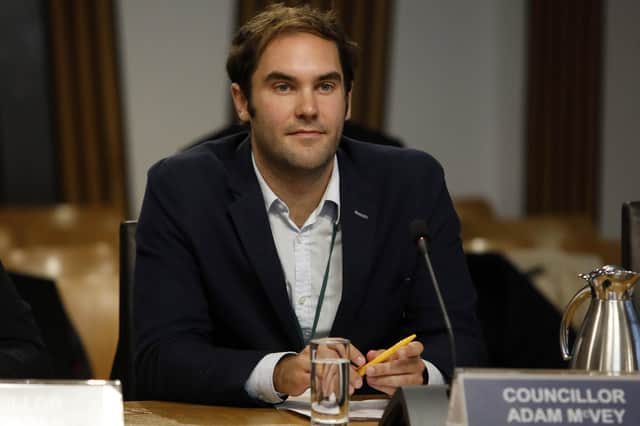How Edinburgh's council services could change after Covid


THE city council will have to reconsider what services it provides after the coronavirus crisis, council leader Adam McVey has said.
He warned councils were likely to face a continuing cash squeeze as they tried to adapt to the post Covid world.
Advertisement
Hide AdAdvertisement
Hide AdHe said: “We will have to have conversations as a council and a city about what we do now and can we sustain the same quantity of services and same level of services.
”A lot of that might be about just doing things differently and some of it might be about what is now unsustainable for us to be carrying on.”
Some services would see changes in the way they were delivered but the council might have to withdraw from others.
But he said it was too early to identify which services might be at risk.
Advertisement
Hide AdAdvertisement
Hide AdIn recent years, cuts considered by the council have included reducing library hours, closing virtually all public toilets and reducing and/or charging for music tuition, as well as slashing funding to Edinburgh Leisure with the consequent threat to sports centres and swimming pools.
Cllr McVey said the council was currently working out a Covid recovery plan. ”It’s looking at how we deliver services in the round and I would expect some quite significant changes to how quite a lot of council services function right now to come back a part of that process, but it’s too early to nail down specifics.”
He said one area being examined was the use of council offices and the potential for co-location of services, potentially including the police and other partners.
And he said voluntary groups could also have a role. “The work the third sector has done right across the city during the crisis has been tremendous, so there may well be scope to look at how we use that community resilience and if there are better ways of supporting vulnerable people that are not necessarily direct council services.”
Comment Guidelines
National World encourages reader discussion on our stories. User feedback, insights and back-and-forth exchanges add a rich layer of context to reporting. Please review our Community Guidelines before commenting.